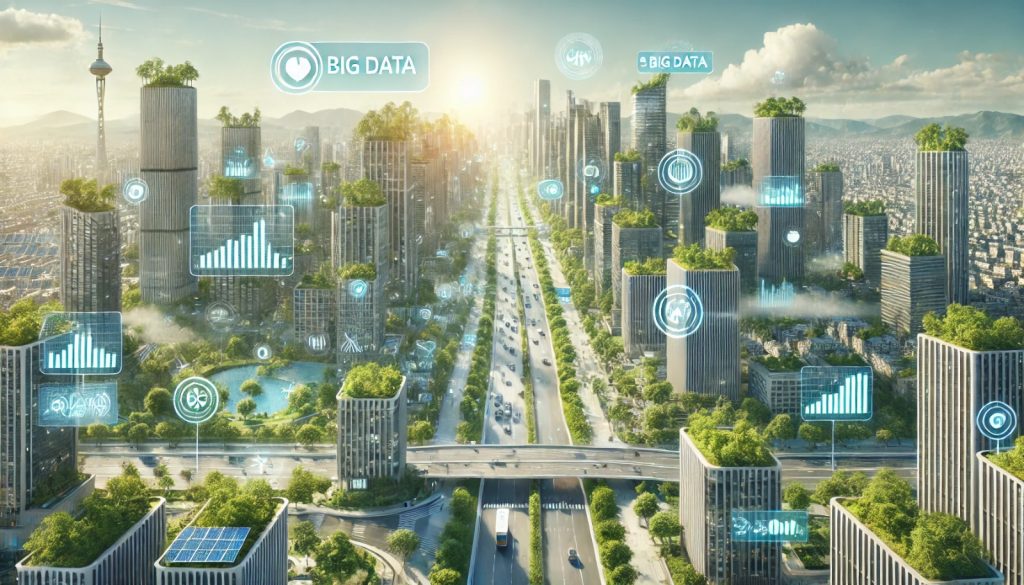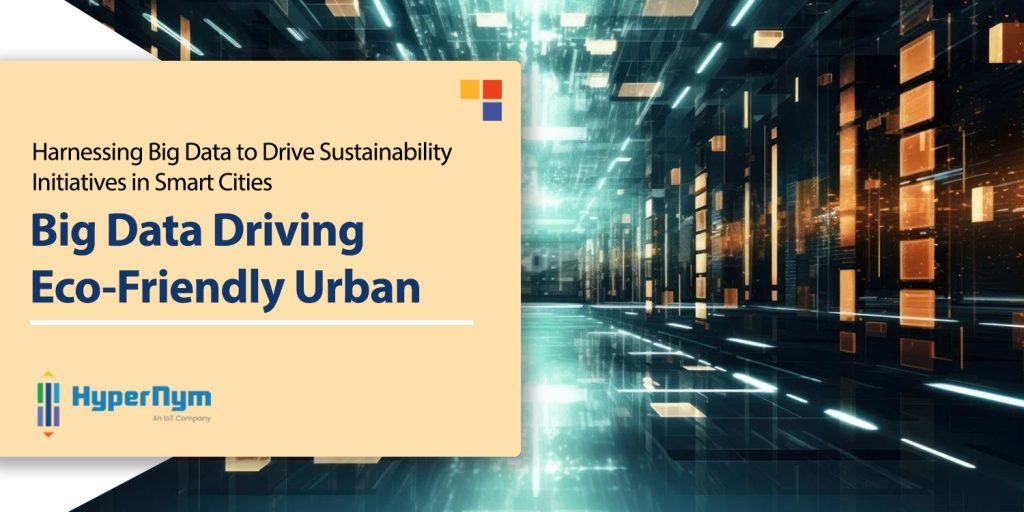Introduction
As today’s world becomes more and more urbanized, cities around the globe are struggling to accommodate growing populations while keeping environmental damages at a minimum. To tackle the challenge, the idea of smart cities has been introduced where urban areas that use technology and data to develop efficient environments. Central to this change is big data, a tool that provides cities with the means of driving sustainability initiatives with new precision and unparalleled effectiveness.
Benefits of Harnessing Big Data for Sustainability in Smart Cities
The three main roles of big data toward smarter cities are:
- Optimal use of energy
- Minimal waste generation
- Effective management of resources
City managers can get enormous analytics on the data provided by sensors, smart grids, and IoT devices to understand consumption patterns for identifications of inefficiency and targeted solutions accordingly.
For instance, big data analytics may be done with energy optimization by predicting peak demand times and adjusting energy distribution appropriately. This will not only reduce wastage but also minimize costs both for the city and the residents. Also, big data renders waste management easier by optimizing the collection routes according to the patterns of disposal. All this accumulates into a fact that these measures decrease the carbon footprints of a city, assist in conserving natural resources, and provide a much healthier environment for the people to live in. Savings that can be accrued through these optimizations are also further re-injected to sustainability initiatives in a virtuous cycle of improvement.

Case Studies
The realization of sustainability in smart cities based on the capitalization of big data has been underlined by instances from the real world. Take the city of Barcelona; for instance, it has leveraged big data to better its waste management system. For example, Barcelona monitored the levels of waste in various parts of the city in real-time by installing sensors in the waste bins. This data is now used to optimize the route of collection for that bin, reducing the unnecessary trip of the truck, consequently saving fuel and lowering carbon emissions. Another is Singapore, where big data is being used to manage water resources more effectively. It has set up smart water meters that provide comprehensive information related to water usage in the city. This enables Singapore to easily identify leakages, consume patterns, and start taking measures to conserve water, thus preventing excessive water wastage.
Challenges and Solutions
While the benefits have been tremendous to use big data for sustainability in smart cities, at the same time there are also certain challenges. The major challenge is the very huge data that can easily be overwhelming and unmanageable. At the same time, assurance of privacy and security regarding the data is needed since smart cities are supposed to thrive on really large amounts of personal and sensitive information.
To address such challenges, cities need to invest in robust data management systems capable of handling large data sets. Advanced analytics and machine learning algorithms will be relevant to help cities derive actionable intelligence from big data. The use of encryption technologies, coupled with strict policies regarding data governance, would protect privacy and security to ensure responsible use of the data.
Outlook
The future of big data in driving sustainability initiatives in smart cities is very much promising and bright. Continued technology advancements have further potential applications of big data. The technologies of artificial intelligence and blockchain are emerging, and through a further combination with big data, they will be woven into the structure of smart cities. For example, AI could help cities improve predictive analytics, so that they might forecast and act on environmental challenges before they become too great. Blockchain could ensure transparency and traceability in data transactions, hence ensuring the integrity of sustainability initiatives. On the other hand, edge computing makes real-time data processing possible at the point of generation, reducing latency and increasing efficiency in making decisions.
Conclusion
In conclusion, enabling big data is key to driving sustainability initiatives in smart cities. By harnessing the power of data, cities can optimize resource management, reduce environmental impact, and create more livable urban environments. Only by leveraging big data, embedding the same with other emerging technologies in practical applications, will its full potential for sustainable urban development be realized as we move forward. This, then, is the opportunity for planners, policymakers, and businesses to review concepts around new solutions and collaborations that will breed the realization of sustained growth in the city of the future.


